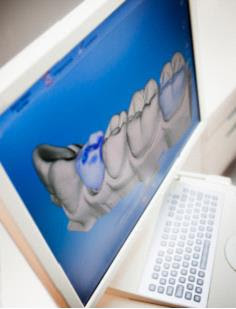This article explains why the All-on-4 is substantially less expensive than traditional dental implant techniques and how this can save patients tens of thousands of dollars.
Dental implants are typically the number one recommendation of dentists when it comes to addressing the need for new teeth. Not only do they look, function and feel more natural than other teeth replacement technologies, they also tend to last far longer and actively promote the health of the underlying jawbone. In spite of this, many New Jersey residents still opt for conventional devices, such as tooth-supported removable bridges or removable dentures. The reason for this is primarily a concern over the cost of new teeth. Dental implants are, unfortunately, more costly albeit for good reason.
This was especially the case with the traditional dental implant techniques used to treat patients who had lost most or even all of their natural teeth, or who had been diagnosed with a “failing” or “terminal” dentition as a result of gum disease. That was until the innovation of the All-on-4 dental implant technique, the key benefit of which is the much reduced new teeth implant cost! Let’s take a look at how this “breakthrough” technique is able to reduce of cost of new teeth by tens of thousands of dollars...
 1. The All-on-4, as the name suggests, only requires four dental implants to provide New Jersey residents with a complete set of replacement teeth. Traditional techniques could require six, eight or even ten implants per jaw in order to give patients new teeth again! Half the number of implants translates into half the cost of new teeth.
1. The All-on-4, as the name suggests, only requires four dental implants to provide New Jersey residents with a complete set of replacement teeth. Traditional techniques could require six, eight or even ten implants per jaw in order to give patients new teeth again! Half the number of implants translates into half the cost of new teeth.
2. The All-on-4 typically only requires a single surgery, whereas traditional techniques could see a patient coming in for multiple procedures over the course of 18 months. With typically only one procedure necessary, New Jersey residents are spared the multiple treatment sessions, X-rays, follow-up appointments and bills associated with multiple surgeries.
3. The All-on-4 typically avoids the need for bone grafting surgery, which is often needed by patients who have been living without teeth and/or with removable dentures for many years. As a result of this, they've lost a lot of bone volume in the jaw to atrophy and therefore require bone grafting so that their jawbones can actually accommodate dental implants. With the All-on-4, the strategic array of implants almost always avoids the need for bone grafting, thereby eliminating the expenses (often tens of thousands of dollars) associated with this invasive procedure.
 4. With only one surgery and one day out of commission, the All-on-4 also allows for indirect savings on the cost of new teeth implants. Patients spend much less time in recovery, which means that they can spend more time being productive and at work.
4. With only one surgery and one day out of commission, the All-on-4 also allows for indirect savings on the cost of new teeth implants. Patients spend much less time in recovery, which means that they can spend more time being productive and at work.
A Final Note on the Cost of New Teeth
Thanks to the innovation of the All-on-4 dental implant technique, the cost of new teeth implants has become substantially lower and therefore more accessible to a wider audience. For those who need it, most dentists and dental implant facilities in New Jersey offer the support of medical financing companies, so be sure to enquire about that.



